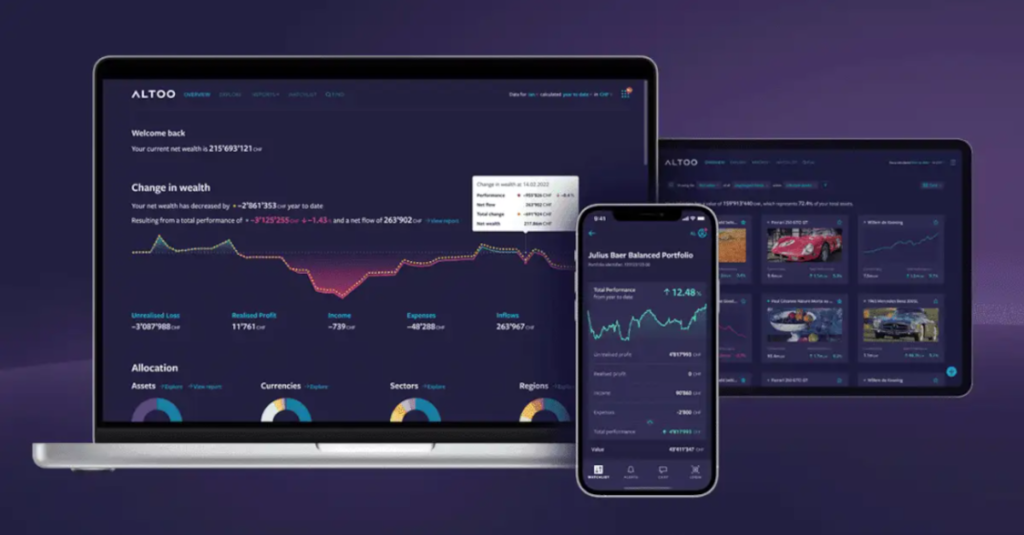What you need to know
- Family offices currently underinvest in operational technology, often relying on old technologies and paper-based methods.
- Transitioning to digital wealth platforms can significantly improve efficiency, decision-making, and collaboration by providing real-time data and streamlined processes.
- Selecting the right technology partner is crucial to ensuring a smooth and effective digital transformation that meets the specific needs of each family office.
According to the most recent Deloitte family office report, nearly three-quarters (72%) of family offices admit they are either underinvested (34%) or only moderately invested (38%) in the operational technology needed to run a modern business. Many family offices still use paper-based methods to store and manage their operational data.
Paper-based methods
In a typical family office, it is not uncommon to find a folder containing all the property and rental agreements, which may include licensing certificates and insurance documents. In addition, the infamous Excel spreadsheet is essentially the most widely used solution in the industry. While seemingly practical, these methods are repetitive, time-consuming and manual tasks.
“It all comes down to the simplification of the complex wealth structure of private individuals or families,” says Simon Kaufmann, Head of Business Development at Altoo AG, about the nature of digitalization.
In a podcast episode, Kaufmann discusses the challenges that families and individuals with high-net worth encounter when trying to digitise their assets. A generally accepted rule in wealth management is that the more wealth you have, the more complex it is, and it is usually spread across different financial institutions. Additionally, the process of working with multiple asset managers and integrating various asset classes can be tricky. Keeping an oversight and making sure that nothing is overlooked becomes the main goal – hence, Excel ends up being a quick-fix go-to tool for consolidating everything.
Elevate Your Wealth Game: Empowering UHNWIs for Simplified Asset Management. Altoo Platform Preview
Transitioning to digital
As family offices move from paper-based and manual consolidation to digital and automated processes, one of the main concerns is the cost of buying or building a solution. Using Excel is indeed much more cost-effective. However, spending two hours a day on a repetitive task that a computer can do in two seconds results in a much more significant loss of time and resources. Also, making decisions based on data that is two weeks old is not optimal for any portfolio. Thus, the primary advantage of digital operations for wealthy clients becomes apparent during decision-making processes, be it saving time, minimising losses or capitalising on opportunities.
“You have (up-to-date) access to all your bank accounts and portfolios, enabling you to make swift decisions. You will find yourself in a more strategic position than before,” explains Simon Kaufmann, Head of Business Development at Altoo AG.
The advantage of using a digital wealth platform is that it makes monitoring and comparing how different investments are doing much easier. It reduces the need for making complicated and time consuming calculations, giving wealth owners up-to-date information about their situation.
It also fosters a greater sense of collaboration through interactive product features.
For instance, a digital solution like the Altoo Wealth Platform allows clients to create and assign tasks, such as requesting advisors to evaluate a specific asset. The advisor can then complete the evaluation and attach the necessary documents to the task. The same is true for linking and attaching supporting documents to transactions, investments, and bank accounts. This allows for greater transparency, something an Excel spreadsheet cannot do easily.

Selecting a tech partner
For collaboration purposes and from a security perspective, transitioning from Excel to a digital wealth platform is a no-brainer, but it does require some thoughtfulness. Since every wealth situation is unique, there are basic questions that need to be answered. For one, how is the current wealth structure set up? Who are the stakeholders, and what are the assets that need to be managed? How should the future target reporting look like?
The reality is that real-time data may not be necessary for some parts of the portfolios, for instance, an investment in a fleet of luxury vehicles. Therefore, a reliable service provider should be able to determine which areas require immediate digitisation while also assisting in developing a clear roadmap for the rest. The goal should always be to simplify complexity, not compound it.
“We grow on client demand, so if you have an idea, we’re happy to take it on, place it on our product map and deliver it over the coming years and months,” adds Simon Kaufmann, Head of Business Development at Altoo AG
The Altoo Wealth Platform can act as a standalone portal and replace your manually prepared Excel spreadsheet. It also provides a more secure environment in which to collaborate with stakeholders and gives a more comprehensive overview of the portfolio.
The platform is customisable based on the individual client’s needs and can accommodate high-tech features to optimise their unique portfolios.
In conclusion
Switching from paper-based methods to digital processes is necessary for modern family offices seeking to streamline operations. While the initial cost of new software may seem intimidating, the efficiency and strategic advantages gained far outweigh the expenses by freeing up time and resources for other more strategic topics or researching for next investment priority. Digital platforms not only simplify data management and decision-making but also enhance collaboration and security. As family offices navigate this shift, selecting a technology partner that understands their unique needs and offers customisable solutions is crucial.
This article was originally published on Simple. Check the media page regularly to stay up to date on our press work.












